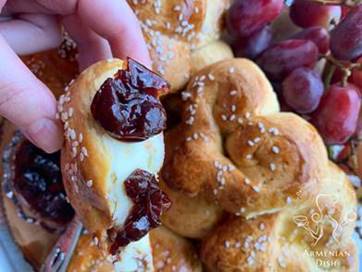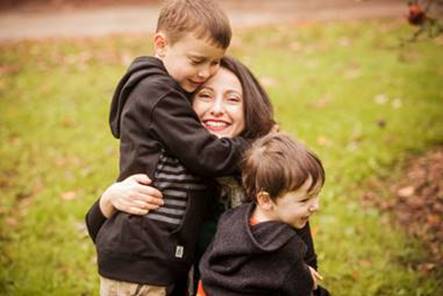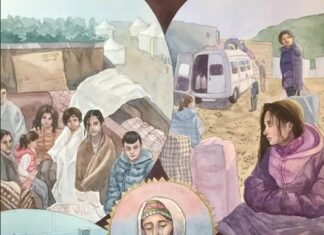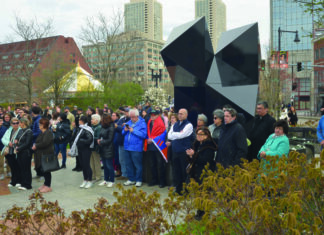TORONTO — “Armenians from around the world are busy making choreg at this time of year. It’s a tradition to prepare this sweet, delicious bread at Easter, however we were lucky that our grandmother would make it throughout the year,” says Sylvia Hagopian, a resident of Toronto, and the founder and recipe creator at ArmenianDish.com.
“Nothing beats the smell of fresh choreg baking in the oven. Practically every nationality around the world has a variation of choreg – and I personally enjoy mine warmed up with a slathering of salted butter and Armenian jam. Making this recipe brings back memories of my beloved grandmother, Hélène Yacoubian, who lovingly baked these choreg for our family. I’m happy to share her recipe, and I’ve added my own twist by making them heart-shaped since choreg = love. You can make yours into a twisted knot or a braided loaf, but I hope you try making these heart-shaped choreg if only to see the smiles on a little one’s face,” she adds.
“ArmenianDish.com represents my journey to recreate and document my grandmother’s many family recipes and dishes. She taught me how to make this choreg recipe. The smell of parsley immediately sends me back to her
apartment in East Toronto. She loved growing beautiful flowers on her balcony. And no matter what was for dinner, she always had parsley dotting her outstretched hands as she greeted me with loving embraces,” remembers
Sylvia. “Her menu might include tangy yogurt soup with mint and ‘mante’ dumplings, deliciously seasoned kebab skewers, generously meaty lahmajoun with squeezed lemon, crispy cheese boereg with tabulé and zesty eetch kofte…to name a few. I’m obsessed with food and food photography, and I know some of these dishes can be time consuming to make. But I promise to break down the steps in a way that helps the reader learn from my trials and errors.”
“My grandmother passed away in 2006. We called her Melma because Medz mamma (‘grandmother’ in Armenian) was a mouthful for her Canadian grandchildren. She spoiled us with unconditional love, kindness, and generosity—while raising us with the strength, resilience and wisdom that could only come from a survivor of trauma, suffering, and the Armenian Genocide. Her home was my escape— where I went to hear advice, guidance, and stories of unimaginable hardships and incredible resilience and strength. Melma’s cooking was gifted with techniques and flavors from Armenia and our diaspora in Turkey, Syria and Lebanon. Like many other Armenians, my grandmother survived the Armenian Genocide and the systematic killing of our people that was started by Ottoman government authorities in 1914.”
“My grandmother’s family went into hiding soon after her father, who was a skilled tailor, was taken and killed. When the moment was right, they left their hiding place with as many belongings as they could manage and walked from Aintab, Turkey, her birthplace and home, until they reached Aleppo, Syria. Having escaped the horrors of the Armenian Genocide, my grandmother grew up in Aleppo and then made her way to Beirut, Lebanon where my mother was born. They later immigrated to Canada where I was born,” says Sylvia.
“On my father’s side, both my grandparents were orphaned by the Armenian Genocide. They were raised in orphanages in Greece, and then the Near East Foundation settled many of these Armenians in Egypt and around the world.*












